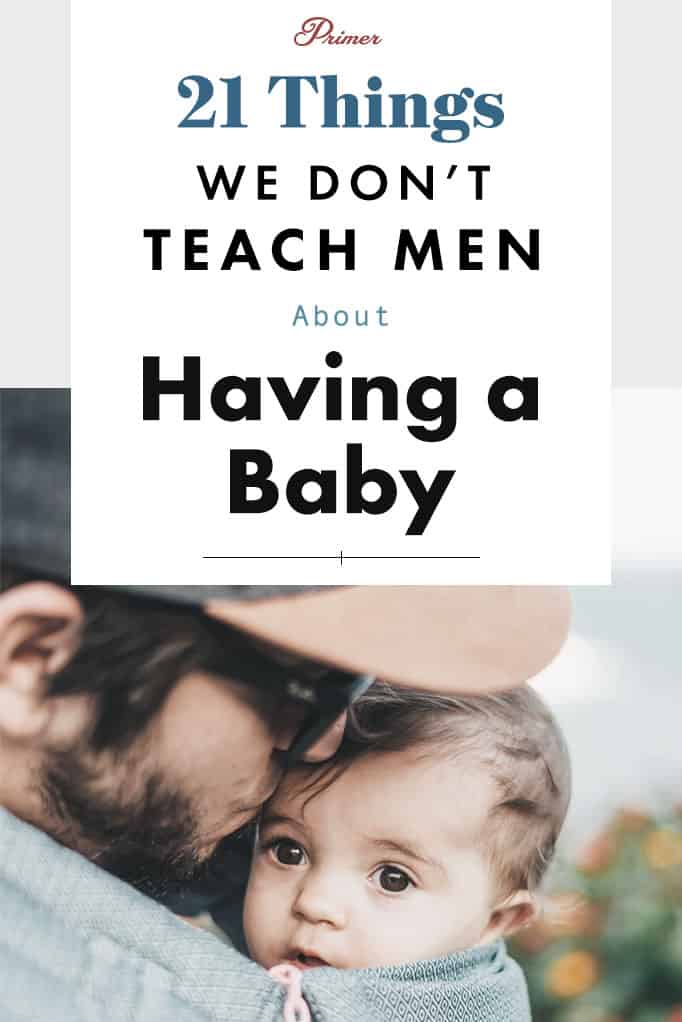
I said this many times during my wife’s pregnancy and the birth of our child: “Why didn’t anyone tell me this?!??”
It’s not like I didn’t ask…
Does Having A Baby Trigger Collective Amnesia?
When my wife and I told some close friends and family we were hoping for a pregnancy in the next year we heard a lot of this:
“Oh that’s wonderful!” “Having a kid was the best decision we ever made!” “Get prepared for things to change!” “Travel now, while you can!” “It’s tough, but SO worth it!”
Not a single person said, “Whoa… you better think hard on that…” or “Good for you, now here’s the real story on having kids…”
…or anything negative at all.
We pressed them for details about the challenges of having a baby and they said vague things like, “you’ll lose some sleep!” and “they get expensive!” but that’s it.
The message from parents, grandparents, and older friends and family was basically: Do it! It’s great!
I didn’t feel like I was getting the whole story, but my wife and I wanted a kid and felt good about the security, stability, and love we could offer a new being. We were fortunate enough to conceive quickly and the first week of knowing we were pregnant was wonderful.
Then the realness dropped.
The Things They Don’t Tell You About Having Kids Begin Immediately
You’ve probably heard those stories about women who are seven months pregnant and still don’t realize it….
Well.
I’m not saying that doesn’t happen (it does), but for us – being pregnant was an unmissable, freight-train like event in our lives.
The changes to your partner’s newly-pregnant body begin right away and the first symptoms of pregnancy can begin as quickly as six days after conception.
Starting in week three, I began my familiar refrain: Why didn’t anyone tell me about this??!!
Getting Prepared: The 21 Things You Absolutely Must Know About Having A Baby
Our healthy, spirited baby daughter was born last year. She’s smart, impatient, and an absolute joy. Even her temper tantrums are cute (well, most of them)!
This is not a comprehensive guide to pregnancy and early infancy. There are books and blogs and classes and experts you should seek out.
The Three Things You Should Read About Pregnancy and Birth
- The Birth Partner: What is pregnancy? What do you do? What the hell is going on?? This has the answers in an excellent, all-around guide to pregnancy and birth from week 1 to 40+. A lot of this will be covered in your birth class (which you need to take).
- Natural Hospital Birth: How do you build your birth team? What’s a birth plan? How do you be the best support you can be? This book was invaluable to me… includes handy checklists for packing your hospital bag and prepping your home for baby.
- Evidence Based Birth: This resource was recommended by our doula (more on doulas later!) and was vital in helping us make informed, science-based decisions about our pre-and-postnatal care. There’s a lot of bad information out there – Evidence Based Birth cuts through the noise.
This is more of a helpful rant. The kind of advice I really would’ve liked as I embarked on this journey with my partner, and hopefully the kind of detailed, real information that will aid your preparation that you won’t find in most blog posts.
Another caveat: this is based on my experience with my partner. Everyone’s pregnancy and birth are different.
The work begins immediately and doesn’t let up, believe me. Here are 21 pieces of information that may ease your path a little.
1. The First Trimester Is Like Having The Flu For 3 Months
“Morning sickness” – what a joke! As my wife put it, “It’s not morning sickness if it’s happening all the time.”
Nausea, dizziness, joint aches, strange aversions to once-loved foods and smells… the first trimester is a time of unimaginable physical upheaval for your partner.
2. All Your Unresolved Issues Will Surface… And Be More Emotional
The only door-slamming fight my wife and I ever had happened in the third trimester.
Whether it’s money, listening, work/life balance, substance abuse, or something else – every relationship has issues. The strain and profound change of pregnancy give extra fuel to your your usual arguments, fights, and issues. It pays to work on your relationship before getting pregnant.
3. Your Needs Don’t Matter As Much…And That’s Hard
Pre-pregnancy, your emotional and physical needs are – or ought to be – as important as your partner’s.
Post-pregnancy, your bad day at work or your back pain or your hunger… just don’t matter as much.
The focus of care and support shift to your partner. That’s as it should be. What people don’t tell you is that shift can be really hard. Your needs go from having equal standing in the partnership to being third – baby and mom come before you.
As a friend of mine put it: men have their own pregnancy too, and a big part of it is learning how to put the needs of your family before your own. Not all the time, but more than before.
4. You Will Be Afraid And/Or Anxious… And It Pops Up In Weird Ways
I’ve known I wanted to be a dad for as long as I can remember and I was so excited when my wife got pregnant. It was finally happening!
I’ve talked to expectant guys who are worried about being good dads, or are anxious about labor and delivery. Not me. I knew I’d be a good dad and our labor support team was excellent.
Still, I was fearful.
Most of all, I was afraid something would go wrong during labor and that I would lose my wife… and possibly our baby. The U.S. lags far behind other developed nations in maternal health outcomes, and the research really freaked me out.
My fear also came up in something less obvious: I got really focused on money. At one point in my wife’s second trimester, I was working two part-time jobs in addition to my regular freelancing gigs. We were going to be fine, financially… but it didn’t feel that way.
Fixating on money is common for a lot of guys. Money is one of the only things we can meaningfully control in the whole process. As a result, it’s easy to fixate and – in the process of trying to create stability for your partner – actually neglect your responsibilities at home.
5. Have Proper Support During Pregnancy
You need to build a pregnancy pit crew.
I struggled with all of the challenges listed above and it took me half the pregnancy to figure out: I needed more support than usual.
I found it in regular check-ins with my friends who are parents, a local dad’s group, and ensuring I got regular exercise to boost my mood. I also got back in touch with my former therapist and had a few targeted sessions on coping strategies for pregnancy.
Pregnancy and new parenthood are unique – and uniquely challenging – life events. Why don’t people tell you to seek extra outside support?
Speaking of extra support…
6. Get A Doula
When my wife got pregnant, I was fuzzy on what a “doula” was. I knew they were involved with birth, but that was about it.
A doula is a woman you hire to provide guidance and support before, during and immediately after labor. Think of them like cross between a birth coach and an advocate.
Getting a doula was the single best decision we made.
Why?
First, doulas are NOT your medical provider – that’s your obstetrician (OB), nurse practitioner, or midwife – but doulas ARE birth experts. An experienced doula will have supported dozens, maybe hundreds of births. Their knowledge and experience are invaluable, especially for first-time parents.
My wife and I were able to call or text our doula whenever we got nervous about a new pain or discharge (they happen). Having her as a resource before labor was key.
Second, doulas know your local healthcare landscape. Our doula introduced us to my wife’s primary care provider and helped us select the hospital that best fit our needs and values. Every OB practice and birthing ward have a different culture – your doula can help you select what’s right for you and it makes a colossal difference in your birth experience.
Third, your doula is like Robert Duvall’s character Tom Hagen from the Godfather: they can serve as a consigliere to the hospital or birthing center, helping you navigate the system and being an advocate for the kind of birth experience you want before, during and after labor.
Finally, during labor a doula is there for you. If you’re laboring in a hospital, your nurse will check in every 30 minutes or so because they have several patients. Your OB likely won’t show up until the final push (get it?) before the baby’s born.
I was shocked to learn: you’ll spend most of your labor alone with your partner.
Having our doula in the room from beginning to end was huge. She supported my wife with breathing exercises, visualization, and encouragement. She gave me a break when I needed to go to the bathroom or grab some water. She was there to tell us what was normal and what wasn’t.
Hiring a doula is a hard sell for a lot of guys, and some women. It can be hard to invite a stranger into such an intimate experience. As one of my wife’s best friends put it, “Why do I need a doula? Matt will be there!”
They’re also expensive. Depending on where you live, a full service doula will run between $800 to $2,500 all in.
You also want to vet your doula carefully. Our doula had a great reputation amongst the hospitals and care providers in our area. Some friends of ours in a larger metropolitan area, however, hired a doula that had beef with the nurses at their facility. The result was unnecessary tension during labor.
On the fence? Trust me: it’s worth it. After you’ve been through the whole birth experience once, maybe try the next one on your own.
Invest in your partner and your birth experience… get a doula.
7. Prepare, Then Accept That You’re Not Prepared
Prep your house. Have a baby shower. Pack your hospital bags.
Then try to relax, have a beer, and accept that no matter what you do you can’t be totally prepared for what’s coming.
8. Be Ready To Self-Advocate In The Hospital Or Birthing Center
Whether it’s a doctor who’s pushing an intervention (like inducing labor too soon) or a rude nurse, remember: you are the deciders. Talk with your partner about how to handle difficult care providers calmly and firmly.
Two things that help: have a simple, detailed birth plan and… get a doula.
There’s limits to self-advocacy, too. When we arrived at the hospital, nurses connected a fetal heart monitor and noticed our baby’s heart rate was dipping after each contraction. They began to set up oxygen and IV fluids for my wife.
I was alarmed at how quickly things were moving, and remembered from our birth class there is a potential downside to having IV fluids in labor (here are the specifics).
Our doula was still on the way, so I did what she coached us to do when things were moving too fast: I asked the nurse, “Is this necessary? Is it necessary right now?”
The nurse said calmly, but unmistakably: “Yes.”
Fifteen minutes later, the additional fluids and oxygen had stabilized our baby’s heart rate and the fluid bag and O2 mask were removed.
Looking back, I’m glad I did that small amount of self-advocacy. I’m also very grateful for the competent and quick-thinking nurses who did what was medically appropriate!
9. You’ll Know How To Hold Your Baby
I’ve never been super comfortable holding babies, but the second after my daughter was placed in my arms, I figured it out.
The lesson: trust yourself. Humans were built to be persistence hunters and take care of babies.
Read more: How to Hold a Baby – Don’t Drop Them On Their Head & Other Baby-Handling Basics
10. You Need To Sleep The First Night (And Every Chance You Get)
The first night we were too excited to sleep. That was a mistake.
The second night I got a few broken hours. My wife (again) got almost none.
On day three I hit a wall. I felt like I was continuously drunk and struggled to remember simple things.
“Sleep when the baby sleeps” is actually great advice that’s widely out there – heed it. If you get so tired you stop being able to function it’s hard to climb out of that hole.
11. People Will Interrupt You Constantly
I had no idea how busy it would be after our baby was born. Weighings, shots, hearing tests, food delivery, and nurse check-ins – it felt like there was always someone coming or going. For the first night, it was welcome… it was nice to be told every 30 minutes our baby was ok!
The problem is, it’s nearly impossible to sleep. Do some self-advocacy and make it known you don’t want to be interrupted overnight unless it’s absolutely necessary (as long as you have a healthy mom and baby!)
12. Have The Right Kind Of Support
Every blog on the internet will tell you cheerily, “Have plenty of support after the birth!”
Yes, you need support. A lot. Not having it is awful.
Here’s the thing about support, however: it needs to be the right kind of support.
Another friend recently had his second kid. Their first few weeks of support came from a family member who’s difficult and turned out to be more stress than was worth it.
My wife and I took extreme steps to ensure support for the first few months of parenthood by moving in with her parents. Sure, we gave up some privacy but it was amazing to come back to our temporary home and not worry about meals or dishes.
Even better, she and I both get along with her folks – it made the first few months much better than if we had done it by ourselves … or with a difficult parent.
13. They Warn You About The Sleeplessness … But Not What It Will Do To You
Everyone knows having an infant will mess with your sleep.
What you don’t know is how you’ll respond to your screaming infant at 3 AM after weeks of insufficient and broken rest.
A pediatrician friend warned me: you will get frustrated. That’s ok. What matters is what you do next: do you set them down, walk away, and calm yourself?
Or do you shake your baby because they just won’t stop?
It’s difficult for me to admit this, but in the first month there were a couple nights when, exhausted and emotional, I was too frustrated to be caring for my daughter.
I never shook or harmed her but I held her while she screamed, seething. Looking back, I can only hope she was too little (and too upset already!) to pick up on my anger. It’s terrible to think I ever made her feel less than totally safe.
It’s difficult to admit to yourself you feel actual hate for your child – even for just an instant. It’s even harder to admit it to your partner. You have to do both.
My wife and I made a plan: if I felt myself getting frustrated, I would wake her and hand off the baby. No questions asked.
Any outcome is better than shaking your baby. Respect the crippling effect of sleep deprivation and how stressful it is to hear your baby wailing.
14. Some Women Get A Lift From Hormones That Men Don’t
I want to emphasize: this is not based on research – it’s my observation alone. That said…
My wife is a superhero.
Her grace and endurance in those first sleepless weeks was incredible. Over time and through conversations with her I began to realize that she was getting a boost from the natural hormones associated with childbirth and breast-feeding that I wasn’t.
Now, that’s not true for all women and it’s NOT an excuse to let up your diligent support of your partner – but it is something to celebrate.
I was ashamed of needing more sleep than her at first. Looking back, I wish I would have appreciated how remarkable she was and continued doing everything I could to support her.
15. You Need At Least A Month Off Work
Surveys have shown dads in the U.S. take an average of two weeks off work.
Studies have shown that the longer dads take off, the more involved they are with their baby – and that leads to a ton of downstream benefits for your infant.
And consider this: the average recovery time for a woman after childbirth is six weeks. If you go back to work after two, she isn’t even halfway healed.
Not everyone can get the time. Not everyone can afford to take the time. If you can – give yourself a month or more. If you can’t, advocate at your workplace for all the dads that follow you.
It’s time well spent supporting your partner, sharing the parenting load, and helping them get back on their feet after the remarkable ordeal of childbirth.
16. You May Not Bond Right Away. That’s Ok.
I loved my daughter the first day she was in the world.
But if I’m honest, the love was a bit… conceptual. A bit robotic. “This is my daughter and therefore I love her.”
I didn’t start to really feel the warm and fuzzies for about six weeks. It took that long to miss her when I went out for a gallon of milk or to work for the day.
And that’s ok. The love is there and it just keeps growing.
17. The First Smile Is A Drug That Keeps On Giving
I’m one of those parents. You know the type: delighted when their kid farts.
The fact is, I can’t help it. My daughter's development is a source of unlimited joy. In the past week alone she’s learned how to grab her own feet, shake a rattle, and babble-scream like some sort of irritable lemur.
I love it.
The first time your kid smiles something switches on in your brain and all the stress, money, and lost sleep is worth it. You can count on it for motivation, energy, and lots and lots of happiness.
18. You Can’t Match A Mother
Even if you’re highly motivated and want to be a hands-on parent from the jump, you simply can’t match what a mother – by nature of being a mother – has to do. From breastfeeding to soothing, she has a unique and taxing role to play.
Accept it. Honor it. Don’t feel guilty or resentful. Continually acknowledge how hard she’s working and do your best to support her.
Also keep an eye out for when the burden is too much. Post-partum depression and anxiety are real and affect a lot of new mothers. Read more about the warning signs of PPD here.
19. Wandering Eye? Handle It.
You’ll hear plenty about how sex drops off during pregnancy… then disappears completely after you have a baby.
You’ll hear less about how cheating during pregnancy (and after) is shockingly more common than you’d think. So common that I had two different therapists caution me about it.
Having a baby disrupts your partnership, period. That disruption can be an opening for those inclined to cheat, or a trigger for those who never thought they were the type.
Yes, sex goes bye-bye for a while. You can deal. Seek help if the changes to your relationship, however, put you at risk for infidelity.
You can never unwind being the guy who cheated while your partner was pregnant.
20. The First 4-6 Weeks You’ll Question If It Was Worth It
Look, for me the first month was a slog. The second month was a lot better. By the third month I was having a much better time.
A caveat: this is only true if you’re doing your job and putting in hours to support your partner. If you’re saying “This is easy!” after two weeks, you’re probably not doing enough… or you’re a 19th century lord who hired a wet nurse.
Just stay focused on that first smile and remember – it gets better and keeps getting better.
21. Breastfeeding Is Really, Really Hard
If you’re a guy you don’t have to worry about this, right?
Actually, you do.
In popular culture breastfeeding is depicted as blissful, effortless, natural… easy. In reality, breastfeeding can be a major challenge for many women. Issues range from inadequate milk supply to poor latch to the anatomy of your baby’s mouth.
My wife experienced searing pain for the first month of breastfeeding and milk wasn’t transferring properly to our daughter. It made them both exhausted and frustrated; my wife worried constantly. With the help of a certified lactation consultant her pain was reduced and our baby’s feeding improved. Many weeks and several thousand dollars later, our kid is still small but she’s getting the milk she needs.
The point isn’t to scare you – it’s to prepare you for the reality of breastfeeding: it’s both art and science, and you may need to seek support outside the hospital if your partner has issues and you’re committed to it.
To Feel Prepared for Fatherhood, Do The Things People Will Tell You About
Take a class.
Read a book (and make it the book your partner tells you to read).
Be ready a month early.
Be ready to do everything for your partner for at least a month.
This is all advice you’ll hear from lots of people and it’s all good. The most important thing is to remember…
Having A Kid Is Probably The Toughest Thing You’ll Do…
For sheer complexity and emotional upheaval, reproducing tops the list of life challenges.
And Yes, It’s Totally Worth It
Build your pregnancy pit crew, dial in your postpartum support, and keep honoring your partner’s efforts… you’ll do fine.



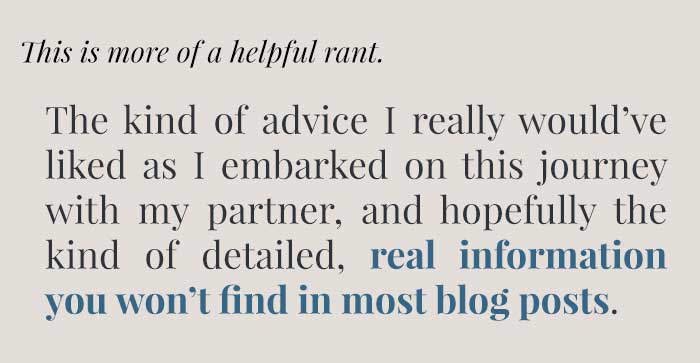
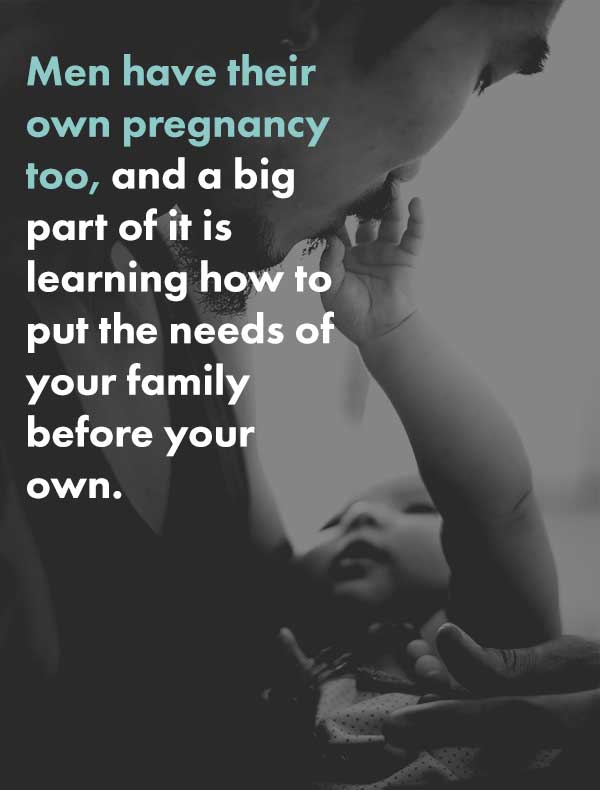
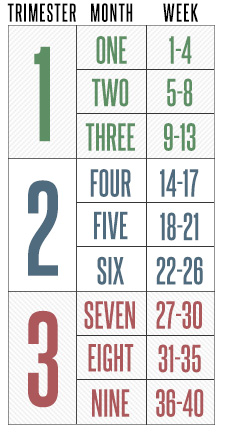
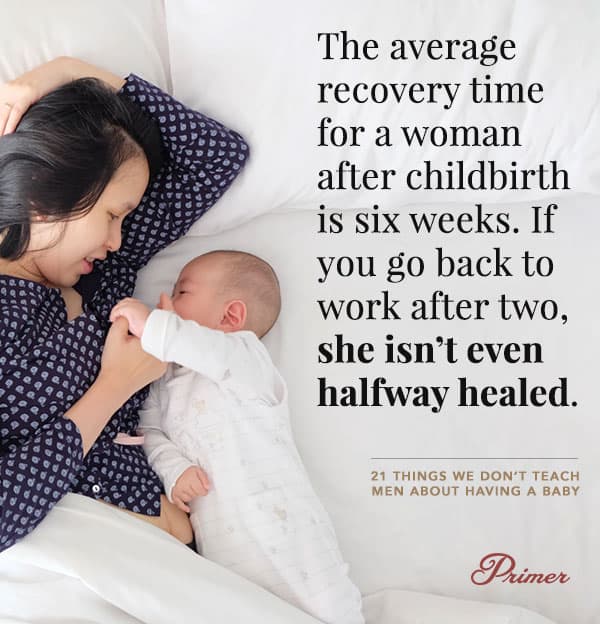
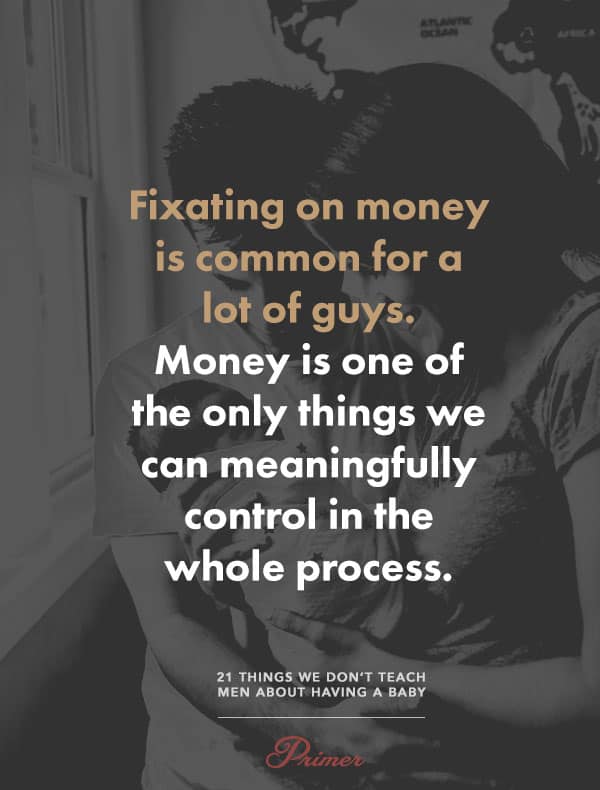
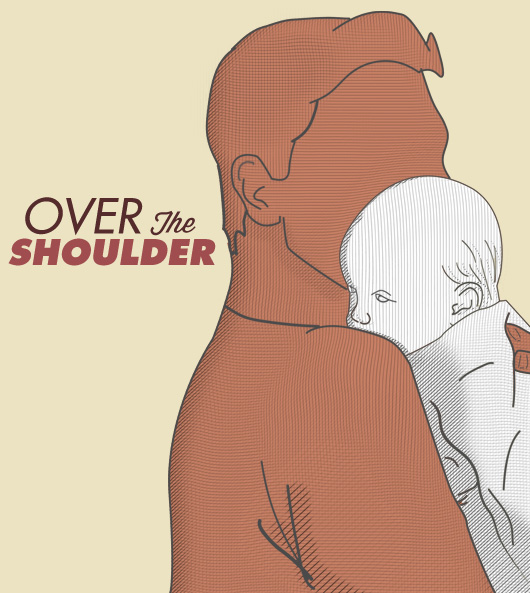











![It’s Time to Begin Again: 3 Uncomfortable Frameworks That Will Make Your New Year More Meaningful [Audio Essay + Article]](https://www.primermagazine.com/wp-content/uploads/2025/01/begin_again_feature.jpg)
